We celebrate World Youth Skills Day which according to the United Nations is meant “to celebrate the strategic importance of equipping young people with skills for employment, decent work and entrepreneurship.” But how would you define a skilled youth, what are the skills they need to be equipped with, how do we provide them with said skills and what will this mean for communities? To help answer these questions we spoke to Silas Pillay, Director of Academics at The Love Trust.
What is a skilled youth?
Pillay believes a skilled youth is a learner who has firstly mastered basic skills (such as communication, literacy, and problem-solving skills), secondly has developed intra- and interpersonal skills (such as emotional intelligence, self-confidence, and creativity) and thirdly specialist skill sets that will be needed in the job market. These are more prevalent in their secondary school years but have a foundation in their primary and formative school years – such as computer literacy.
- Are skilled youth and educated youth synonymous?
Not necessarily. For Pillay, the split comes in more pronounced later in terms of either technical, vocational or academic. And that’s when you speak to the career pathing of the learners: going into the training sector as opposed to the secondary school provisioning.
He explains that in the foundation and primary phase of a child’s education this is more fluid or generic. Learning any skill, whether in terms of the academic curriculum, psychosocial skills, manners, sports, arts and culture, or any other skill set, is already a major milestone for children and will be vital steppingstones for their lives ahead.
But, when you talk at the youth level, and this day is aimed at the youth, Pillay wants to highlight that vocational guidance is critical. He highly recommends the need for aptitude assessments to identify individual strengths and talents, especially in grade eight and nine junior secondary classes so that before they choose the actual career path, they have a better sense of where their aptitude, and passions lie. He believes that we will see more successful outcomes for learners that way. By taking note of first-world countries’ career pathing we can tackle the issues of the disparity between the number of graduates and their employability. This, says Pillay, should be the acid test as to whether our system is working. Because ultimately, if you are gearing a child to have an academic degree, and then be unemployable, which is prevalent now, then it’s not working.
- What do skilled youth today mean for South Africa’s workforce and the economy of tomorrow?
If we look at the current situation in South Africa that we’re facing with level six load-shedding, fuel hikes, unemployability and unemployment – it’s not a good picture. What we need to do is to skill young people to meet the needs of the workplace and boost our economy. But it doesn’t help to put a square peg in a round hole, so to speak. For example, a lot of young people want to get an engineering or IT degree yet fail to do so and are never provided with an alternative route. To that end, Pillay would aim to to support alumni into employability.
Think what it would mean for South Africa’s workforce, says Pillay, if we focus on the skills’ needs out there in the workforce and then bring that into the schooling system. It would mean the economy is boosted, more employment, and more hope for the youth.
- Why is it an important day to celebrate this day not just for the learners at Nokuphila but also across South Africa?
Because of the disparity between schooling (this includes tertiary) and the outcomes (in terms of where learners go afterwards), due to a mismatch between industry and the workplace needs versus what the schooling model provides. That gap needs to be closed. Pillay goes on to say that it goes on to assist the bigger picture: the economic challenges that we face as a country.
If other countries and not just first-world countries are showing successful results using a model that uses skills and academic streams, then we should follow suit. It would be the answer to most of the problems that we’re facing in South Africa, especially concerning unemployability among the youth.
- How does quality ECD training for teachers translate into more skilled youth of the future?
When we talk about early childhood development, it’s specifically in preschool where the skills development process starts. And if these developmental milestones (skills) are not achieved at that young level, we are not going to win in the bigger picture. It’s the scaffolding that has gaps in it and we need to focus on basic skills at an ECD level. By having qualified, passionate teachers and practitioners who unlock learners’ potential by helping them master the three core skill types we will help free them of the shackles of poverty.
Holistic development starts at an early age but Pillay states that they don’t just focus on the children, they also need to train families or the family member who cares for the child. Pillay’s approach is a dual system of saying whatever you do at home complements what we’re doing at school. This mainly involves play-based learning as children learn through play and that needs to be replicated at home or continued at home. It doesn’t require academic skills from parents, it just requires taking the time to spend with their child in their play area.
- How are you equipping your learners with important skills for employment later on in their lives?
The Love Trust’s dedication to providing quality holistic education for their learners reflects in the excellent education standards; the amazing psychosocial support they provide learners through the School Based Support Team; their sport, music and art programmes; their use of the latest eLearning platforms, tools and ICT skills training for senior leaners; cross-cultural communication initiatives (they have an initiative with a school in France where learners write each other letters as online pen-pals); and much much more.
- What are the skills for employment that you are equipping the learners with?
Although many of the skills learnt are intangible and more behavioural and emotional many have practical applications that can be measured such as communication (like public speaking, debate); problem-solving; sport; drama; and music.
- How does “if you teach a child, you teach the whole community” resonate with what the Love Trust does?
It resonates very well, states Pillay. That phrase is absolutely on point as The Love Trust theory of change is community upliftment through education. That’s precisely what The Love Trust aims to do to address future generations, which is our primary target, through their Nokuphila school; their ECD teacher training and development – to train those children as future generational leaders.
Pillay explains that they are not looking at immediate or short-term relief as their core business although there are many immediate demands such as food shortages. They’re looking to the root of the issues of poverty, eradication of inequity and lack of quality education. Their long-term community empowerment approach is precisely that. It is to empower the future generation of leaders by developing a child and then obviously having a long-lasting impact rather than addressing symptoms and immediate needs alone. They also address community upliftment through the secondary beneficiary level: by offering parents training and having them brought into the learning processes. This way the community already starts bearing the fruit of this relationship throughout the whole process.
Because, says Pillay, as much as we just want to develop children, or teachers, you need to take others on the journey when and we do that. We do that primarily for the children, but then we engage intentionally with the other people who are involved in the child’s sphere of influence.
About The Love Trust
Our purpose
– Founded in 2009, we are a South African charitable not for profit organisation (NPO) with a vision to nurture future generations of servant leaders.
– Providing vulnerable children with quality Christian education and social care that includes academic excellence, spiritual strength, and moral integrity.
– Creating a resilient organisation together with our partners to benefit the communities we serve.
What we do
– Our core focus areas in education are to –
- Deliver quality Christian education to primary and pre-primary school children at our Nokuphila School in Thembisa, Midrand.
- Train black South African adult women as accredited early childhood development teachers qualified to teach Grades 000, 00 and Grade R school children.
– We support the South African government development commitments to the UN Sustainable Development Goals (SDGs).
Where we’re headed
‒ Our goals for the near future are to:
- Grow our reach and footprint by strengthening our partnerships with organisations that share our vision of delivering quality education to vulnerable communities
- Grow our reach beyond primary school level. We aim to mobilise our resources to realise the dream of Grades 8 and 9 at Nokuphila School
- Develop Level NQF 6, NQF 7 – B Ed curriculum for ECD teachers with a view to commence classes in 2023
Visit the Love Trust website at www.lovetrust.co.za


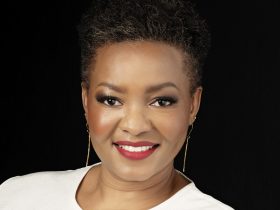
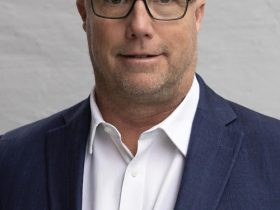
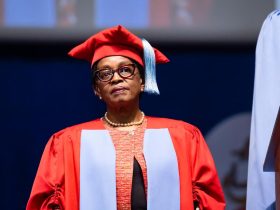


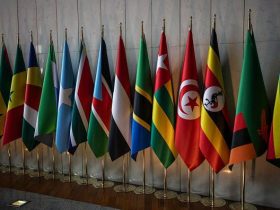

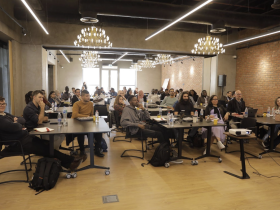









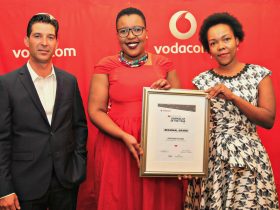




Leave a Reply